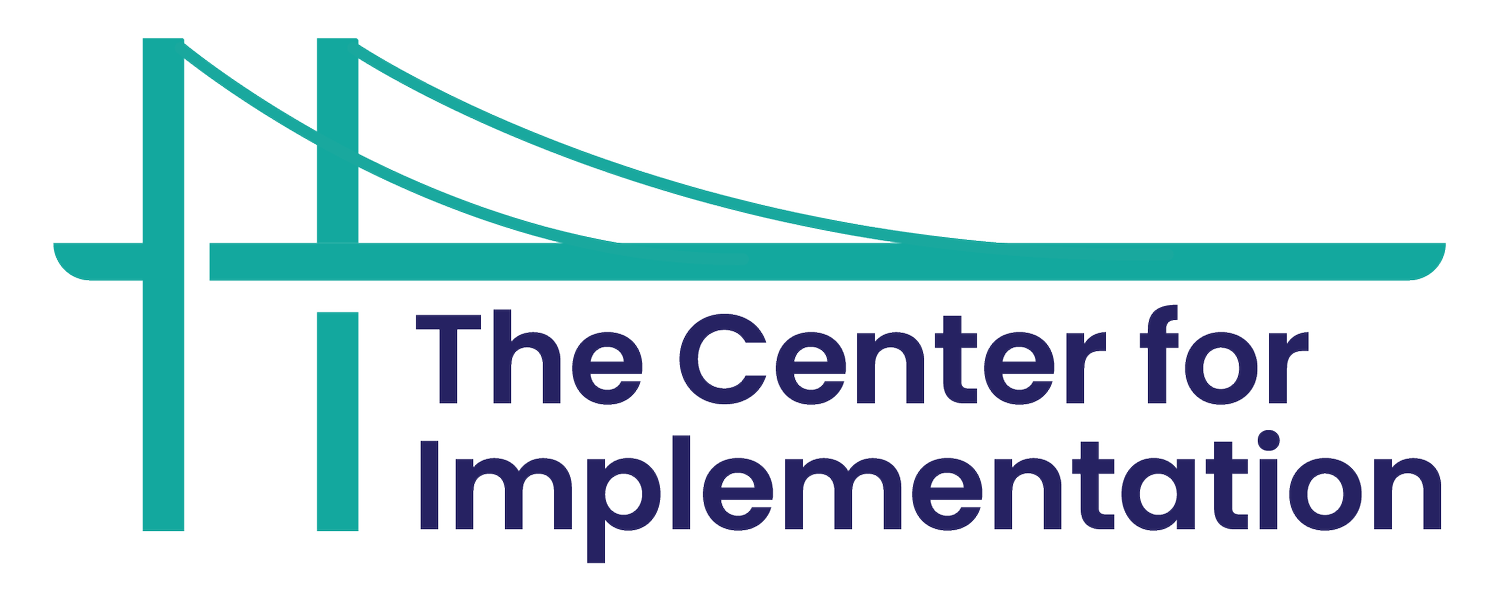Project Spotlight: The Use of Implementation Facilitators as a Multifaceted Implementation Strategy to Support the Implementation of Complex Interventions
By Katherine M. Dollar, PhD, VA Center for Integrated Healthcare, Syracuse, NY, JoAnn Kirchner, MD, Principal Investigator, VA Behavioral Health Health Quality Enhancement Research Initiative (QUERI), Central Arkansas Veterans Healthcare System (CAVHS), Jeffrey Smith, Implementation Coordinator, VA Behavioral Health QUERI, CAVHS, and Eva Woodward, PhD - Center for Mental Healthcare and Outcomes Research, Central Arkansas Veterans Healthcare System, Department of Psychiatry, University of Arkansas for Medical Sciences
Complex evidence-based clinical innovations are challenging to implement, with many settings requiring implementation assistance to increase likelihood of innovation uptake with fidelity. Implementation facilitation (IF) is a multifaceted strategy involving interactive problem-solving and support that occurs in a context of a recognized need for improvement and supportive interpersonal relationships. However, there is limited information regarding how to develop methods to educate implementation practitioners on the use of implementation strategies and how to sustain these competencies over time. To address this gap, we developed, initiated, and evaluated an implementation facilitation training program for both implementation practitioners and researchers.
Implementation frameworks in action: How the integrated–Promoting Action on Research Implementation in Health Services (i-PARIHS) framework informs the design of implementation facilitation
IF is an implementation strategy informed by the integrated–Promoting Action on Research Implementation in Health Services (i-PARIHS) framework. The IF Training Hub faculty have substantial experience applying and testing the impact of IF in supporting implementation of evidence-based practices (EBPs) and other clinical innovations in many health care settings.
The Implementation Facilitation Training Hub
The Implementation Facilitation Training Hub trains implementation practitioners and researchers working either externally or internally to the clinical environment through:
A 2-day in-person (or virtual) IF Training Program (approximately 14 hours of training) for VA and non-VA trainees that will improve knowledge of and confidence in using IF to implement EBPs and other clinical innovations.
Implementation Facilitation Training Manual. The purpose of this manual is to:
1) provide information and resources for individuals seeking to understand facilitation processes; and 2) support development of the skills needed to help organizations implement clinical innovations. The manual incorporates implementation science, quality improvement, and clinical operations expertise and includes practical recommendations for applying strategies that can improve uptake of effective practices by addressing barriers at the provider or health care organization levels. The manual is available at https://www.queri.research.va.gov/tools/implementation/Facilitation-Manual.pdf.Post-training mentoring and consultation on application of IF strategies for trainees, and access to an Implementation Facilitation Learning Collaborative is available to trainees for ongoing learning.
Learning objectives of this training hub are to prepare trainees to:
Understand and describe i-PARIHS domains involved in guiding application
of IF strategiesCompare/contrast the roles/activities of External Facilitators, Internal Facilitators, Site Champions and other stakeholders
Apply recommended IF activities in the 3 phases of implementation
(i.e., pre-implementation, implementation, sustainability phases)Apply methods to overcome barriers or resistance to practice change
Utilize approaches to facilitate stakeholder engagement
Apply processes for developing a local implementation plan
Use best practices for virtual facilitation (e.g., IF delivered via virtual platforms)
Our initial findings, based on an independent program evaluation of the training, indicate that we have developed and conducted an effective IF training program with participants reporting significant increased knowledge and confidence in applying IF skills.
For additional information please contact Katherine Dollar at Katherine.dollar@va.gov.
This article was featured in our monthly Implementation in Action bulletin! Want to receive our next issue? Subscribe here.

